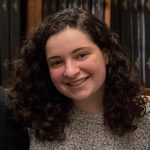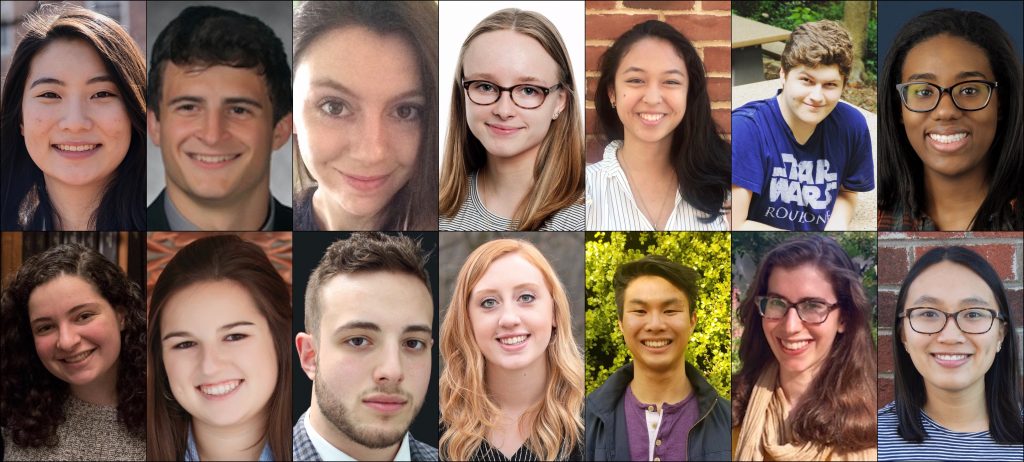The Victoria Finnerty Travel Award supports travel costs for undergraduates engaged in research to attend the Annual Drosophila Research Conference. Victoria Finnerty, who died in February 2011, was a long-time member of the Genetics Society of America and served the Drosophila community and the genetics community at large in many capacities.
A wonderful geneticist, Vickie’s ground-breaking work as a graduate student used high-resolution recombination analysis to dissect gene structure. This set the stage for a 35-year career in which she excelled as a gifted teacher as well as research scientist. Vickie was also a wise and compassionate mentor and teacher for whom interactions with her students was a constant joy. She constantly sought new ways to engage undergraduates in their genetics courses and in research; this travel fellowship fund continues Vickie’s stellar example.
The 2019 award recipients are making strides in their Drosophila research, which they will share at the 60th Annual Drosophila Research Conference in Dallas, Texas, from March 27–31, 2019.

Katherine Fisher, Indiana University Bloomington
My research is focused on characterizing the role of a gene called smoke alarm in the growth and function of pain-sensing neurons in fruit fly larvae.

Esther Kwon, University of North Carolina at Chapel Hill
My research focuses on the two types of histone proteins (replication-independent and replication-dependent) and on understanding compensatory mechanisms between these two types of histone proteins in fruit flies.

Kathy Le, Johns Hopkins School of Medicine
I use Drosophila germline stem cells as a model to understand how advanced paternal age is associated with a higher risk of certain birth defects and neurodevelopmental disorders.

Carolyn McGrail, Baruch College (CUNY)
I investigate the effect of a juvenile hormone mimic, methoprene, on the JAK/STAT pathway in Drosophila melanogaster.

Caroline Miller, Davidson College
I investigated when two novel genes, CG5050 and CG5043, were expressed during spermatogenesis in order to identify their roles in mitochondrial shaping.

Taylar Mouton, University of Rochester
My research focuses on genetic suppressors of a selfish gene complex in Drosophila melanogaster.

Amanda Petersen, University of St. Thomas
In my research, I examine the role of the Fibulin gene in the movement of the sex cells in fruit fly embryos.

Caroline Phan, Davidson College
This study was undertaken to characterize CG5755’s role in mitochondrial-shaping by identifying functional connections among CG5755, mitofilin, and mitofusin (fzo), as well as CG5755 protein localization.

Nicco Ruggiero, State University of New York at Buffalo
The axonal trafficking of ER-retained proteins: novel insights into how the ER pervades the axon.

Francesco Satriale, Bucknell University
I study how chronic bacterial infection affects the host immune response to future infections in Drosophila melanogaster.

Helen Stone, University of Virginia
I study how environmental, genetic, and sensory factors influence cold tolerance and overwintering in the fruit fly.

Rebecca Tarnopol, University of Michigan
I study how fruit flies adapt to toxic host environments.

Brandon Turner, University of North Carolina – Charlotte
Analyzing population genetics of genome structure variants in D. yakuba and D. santomea.

Isaac Wong, University of Rochester
I study how satellite DNA arrays—large blocks of tandemly repeated sequences—change in size and location across the genome, and how they impact Drosophila genome evolution.




